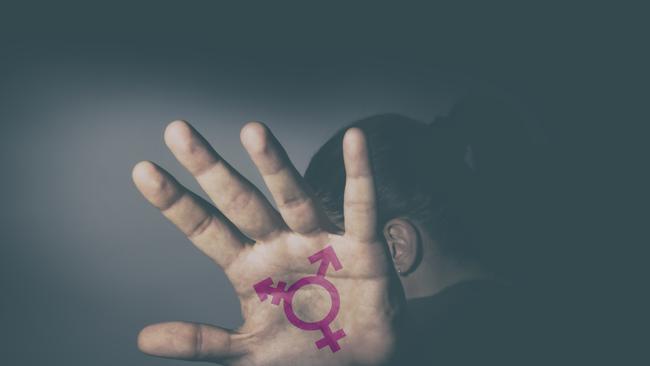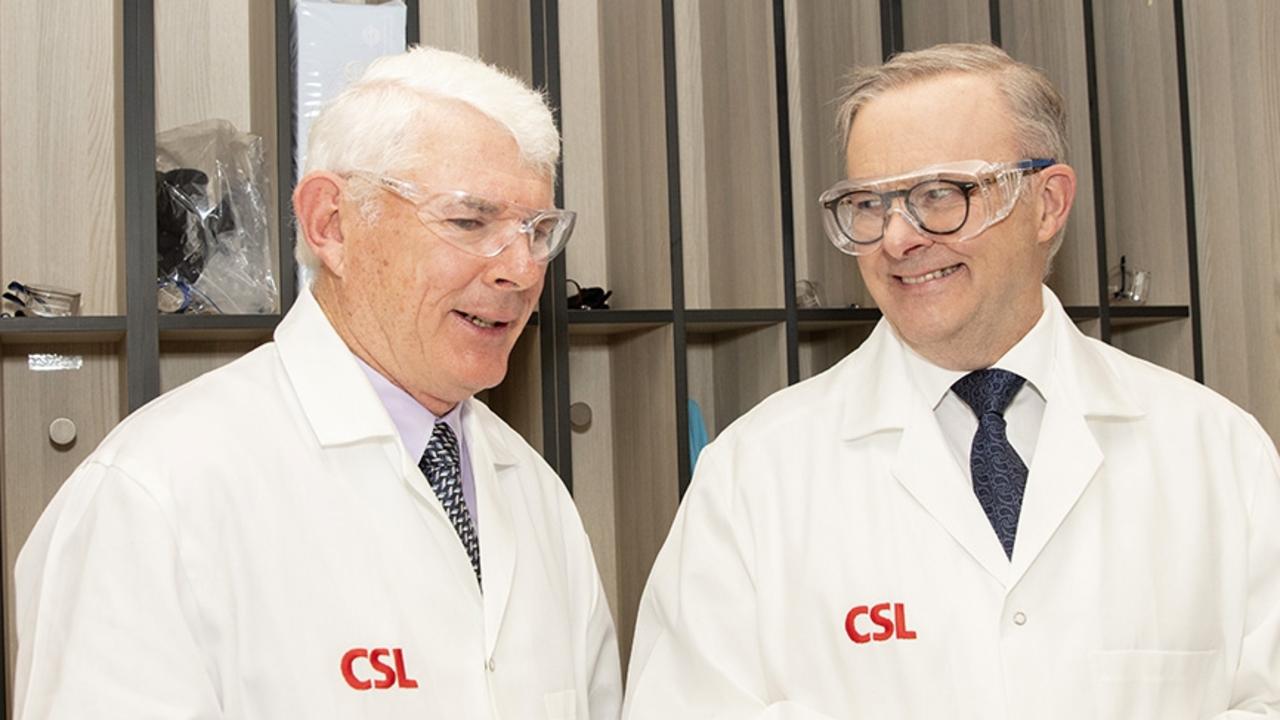Four Corners story linked to $6m grant for Australia’s busiest kids’ gender clinic
Positive publicity from an ABC Four Corners program may have been worth $6 million to Australia’s busiest youth gender clinic.

Positive publicity from an ABC Four Corners program may have been worth $6 million to Australia’s busiest youth gender clinic.
Paediatrician Michelle Telfer, clinic director at the Royal Children’s Hospital in Melbourne, said it was “really interesting” that the TV program, called Being Me and featuring two “intelligent, articulate” transgender girls from her clinic, went to air just before the 2014 state election won by Labor’s Daniel Andrews.
The Telfer clinic had lobbied both the outgoing Napthine Coalition administration and the opposition after a dramatic surge in new referrals of vulnerable children.
Six months later, the Andrews government announced a special, “life-saving” injection of $6 million over four years for Dr Telfer’s clinic, so she could cut waiting times for “gender affirmative” treatment, which includes drugs to block puberty and opposite-sex hormones for young people who believe they were “born in the wrong body”.
“It’s the personal stories that make the difference,” Dr Telfer told Victoria’s mental health royal commission in July, just before The Australian began reporting global concern about the safety and ethics of the “affirmative” transgender medical model.
In August, federal Health Minister Greg Hunt called for urgent advice on this patient safety question from the Royal Australasian College of Physicians, and a month later the Royal Australian and New Zealand College of Psychiatrists disendorsed RCH “world’s most progressive” treatment standards for trans youth, pending “further review” of evidence.
On Monday, Four Corners returns to the topic with a program called Not a Boy, Not a Girl, in which Olivia, 11, says: “I am non-binary, which means I have no gender”.
Another non-binary person, Riley, 22, implies that the explosion in the atypical teenage caseload at gender clinics has nothing to do with social contagion via friendship groups and online platforms such as reddit and YouTube.
“No-one would transition because it’s a fad — because it’s actually an awful experience and just generally in society you are ostracised,” Riley says.
The program, produced by investigative journalist Janine Cohen, quotes a psychiatrist who suggests gender identities such as non-binary are not just made up — “I think non-binary people have existed as long as we have. But up until more recently there hasn’t been a language for it”.
Ms Cohen also produced the 2016 ABC Australian Story program, About a Girl, featuring a high-profile patient of Dr Telfer’s and an introduction by Premier Andrews.
Ms Cohen was the reporter on the 2014 Being Me program, which quotes Dr Telfer as saying puberty blockers give patients “time to think about what you want to do in the long term”, while easing the distress of puberty.
One way ticket?
Overseas studies suggest the vast majority of patients who start on puberty blockers, around the age of 10-12, go on to irreversible cross-sex hormones, with side-effects including infertility, loss of sexual pleasure, cardiovascular problems and possibly damage to the growing brain.
In its only public statement so far, RCH said in December that its gender clinicians were “leaders in their field” who offered treatment “based on the best available medical evidence”.
The 2014 Four Corners program does not mention any downside to puberty blockers, and Dr Telfer suggests to viewers that the “very small” chance of a child growing up to regret hormonal treatment is outweighed by the “extremely high” risk of suicide without affirmative care.
The emerging trend of regretful young adult “detransitioners”, and intensifying global scrutiny of the trans youth medical model, have been little reported in most media outlets.
Under its website listing for “media advocacy”, the Telfer clinic includes nine positive ABC broadcasts and reports.
A search of the ABC website gives 12,900 results for the word “transgender” but none for “detransitioners”.
In Britain and Sweden, sceptical coverage of youth gender clinics — with public broadcasters doing investigative reports on puberty blockers, detransitioning and exaggerated suicide statistics — may help explain signs of a peak in patient numbers.
In Stockholm’s youth gender clinic, there was a drop-off in new referrals in 2018, according to new data.
In May that year, the Swedish press began publishing critical commentaries following a national inquiry proposal to lower the minimum age for trans genital surgery from 18 to 15, said a prominent child and adolescent psychiatrist Sven Roman.
In 2019, he said, two critical documentaries by Sweden’s public broadcaster SVT — with the series title The Trans Train — were “widely watched”.
“I think that (following this media coverage) the awareness in our society of the problems with the treatment of gender dysphoria is the main reason for the decline (in new referrals),” he said.
Dr Roman was among a group of practitioners and clinicians — including the internationally renowned neuropsychiatrist and researcher Christopher Gillberg — to raise the alarm in Sweden.
In the UK, new referrals to the NHS Tavistock youth gender clinic seem to have peaked in the third quarter of 2018-19, according to data published in January.
Media scrutiny of the Tavistock clinic has come from The Times, The Economist, The Observer, The Daily Mail, Sky News and the BBC’s flagship investigative program Newsnight, with its medically trained journalist Deborah Cohen also reporting on the puberty blockers controversy in the British Medical Journal.
On Sunday, the BBC reported the go-ahead for litigation against the Tavistock clinic arguing that under-18s cannot lawfully give informed consent to puberty blockers with unknown long-term effects.
One of those bringing the case Keira Bell, 23, a detransitioner who went on puberty blockers at 16, told the BBC: “I was allowed to run with this idea that I had (that I was a boy), almost like a fantasy”.
“I think it’s up to these institutions, like the Tavistock, to step in and make children reconsider what they are saying, because it is a life-altering path.”
Ms Bell has come off testosterone but complains of feeling “stuck between the two sexes”. She had a double mastectomy.
In the US, youth gender clinics have rapidly spread but centralised data is lacking, the trend in referrals is not clear, and mainstream media reporting is scant.
In Australia, the little data from gender clinics available under Freedom of Information laws does not yet show referrals peaking.
At the Queensland Children’s Hospital gender clinic, the number of new cases jumped from 404 in 2018 to 611 last year, notching up an 1,172 per cent increase since 2014.
In July, Dr Telfer said figures for the first half of 2019 were up 20 per cent.
“Last year we had 269 new referrals … so it’s likely that we’ll be receiving over 300 new referrals (in 2019),” she said.
In 2012 when Dr Telfer took charge, there were just 18 new cases. RCH ignored a request for full year data for 2019.
The Australian sought comment from the ABC, the Andrews government, Dr Telfer and Dr Pang.



To join the conversation, please log in. Don't have an account? Register
Join the conversation, you are commenting as Logout